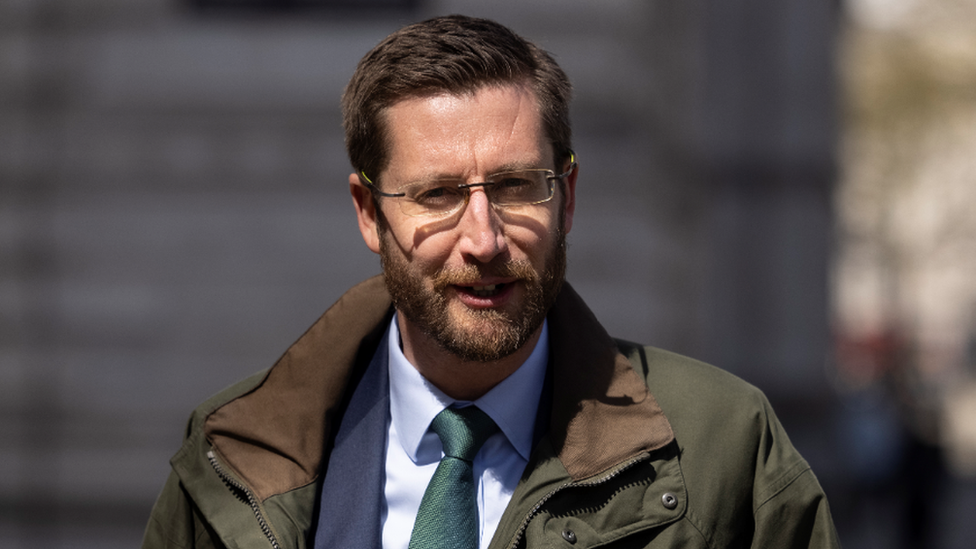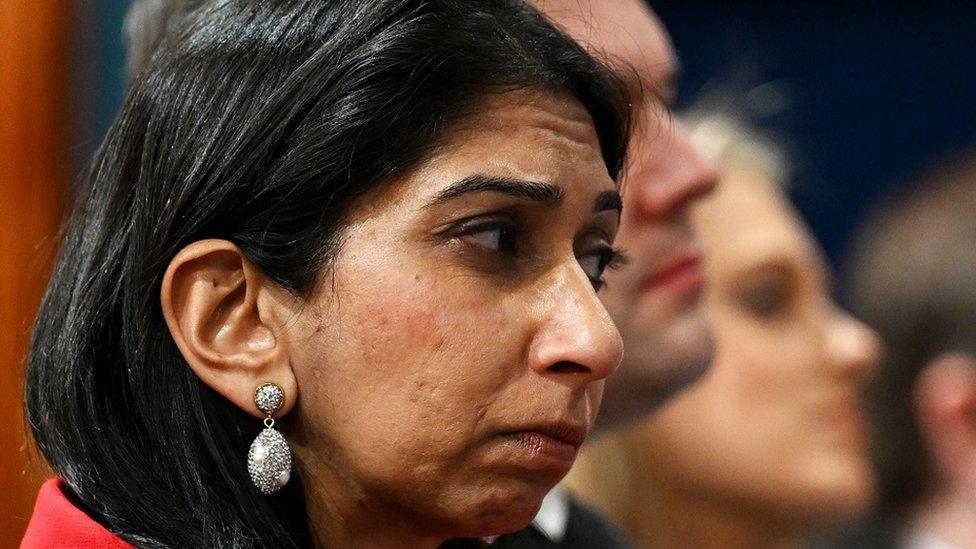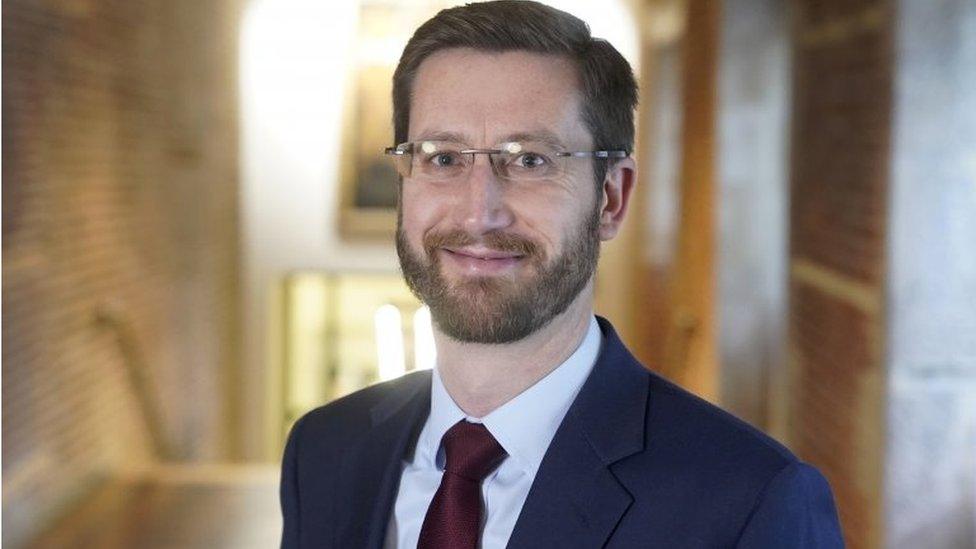Calling us the Blob is insulting, says top civil servant
- Published

Simon Case has been cabinet secretary - the UK's top civil servant - since September 2020
The UK's top official has called on politicians to stop referring to the Civil Service as "the Blob", calling the term "insulting".
Simon Case told MPs he was not aware of any current ministers using the term, which he added was "dehumanising".
But he said attacks on civil servants by "significant political figures" had increased in recent years.
He added it was part of a wider trend towards more "vindictive" language in political debate.
Mr Case also said there had been attempts to "weaponise" former senior official Sue Gray's planned move to become an adviser to Labour leader Sir Keir Starmer.
Her move was recently cleared by the appointments watchdog, but has been criticised by some Conservative MPs.
"The Blob" was initially popularised by Michael Gove when he was education secretary, to refer to education unions, teachers and councils who were critical of his policies.
In recent years the term has acquired a wider meaning, and is now mainly used by Conservative politicians to describe officials seen as reluctant to implement government policy, or unenthusiastic about Brexit.
Appearing at the Commons public administration committee on Wednesday, Mr Case did not name any politicians in particular for using the term.
But he said attacks on officials "individually and collectively" had increased in "the last five years or so," and had "undoubtedly undermined the good functioning of government".
"I'm very happy to say that under this prime minister things have changed very significantly," he added.
Partygate inquiry row
The question session comes after a row over Ms Gray's move to become Sir Keir's chief of staff after a cooling-off period recommended by the public appointments watchdog.
Last week, the Cabinet Office said Ms Gray had committed a "prima facie" breach of civil service rules by not declaring internally the initial contact she had with Labour over their job offer whilst she was still a civil servant.
The former official sprang to prominence last year for leading the Partygate inquiry into Boris Johnson when he was prime minister.
Her move has been criticised by some Tories, who argue it undermined the impartiality of the inquiry into lockdown-breaking parties in Downing Street.
This includes Mr Johnson himself, who has previously said it raised questions over the conclusions over her inquiry.
Mr Case told the committee the Cabinet Office probe had found "no evidence" that she had shown any political bias during her career as a civil servant.
Asked about Mr Johnson's comments, he questioned whether the timeline "quite works" - with Ms Gray's first contact with Labour coming several months after her Partygate report was published.
He said the "prima facie" phrase used by the Cabinet Office - Latin for at first sight - was added to its conclusions by a minister out of "fairness", and on the recommendation of a lawyer.
He added that Ms Gray had said she didn't take the job until March this year, but added "we've not been able to test that ourselves".
Related topics
- Published8 March 2023

- Published1 September 2020
